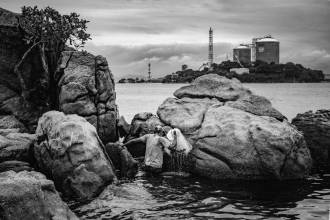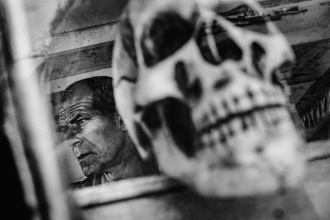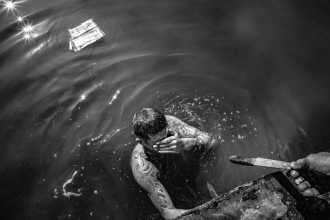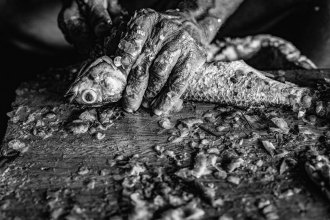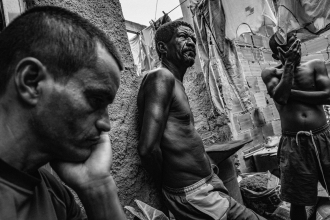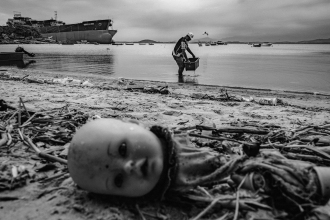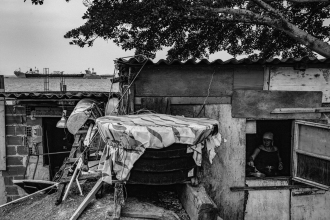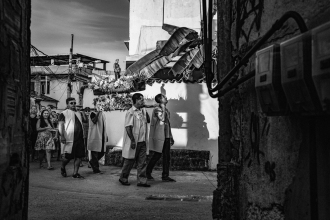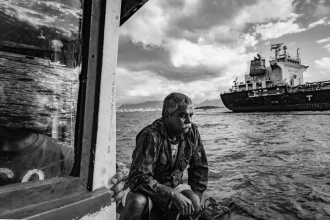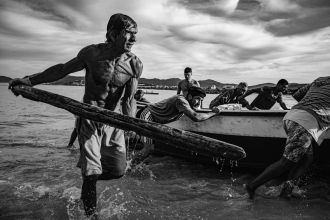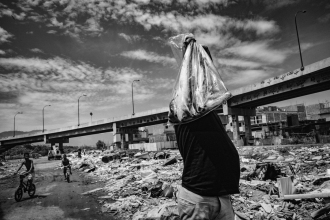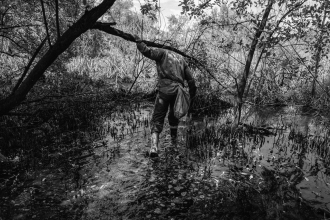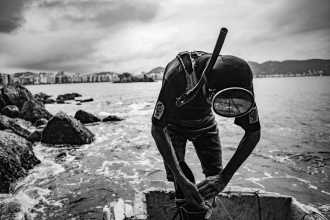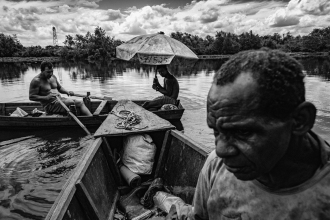voltarTO THE LEFT OF CHRIST
The community of artisanal fishermen of the Guanabara Bay had their last hopes of saving their habitat blown away with the Rio 2016 Olympics. The promise made by the Rio Institutions, in compliance with the Olympic requirements, to purify 80% of the Bay’s water, has completely failed. Currently the state of degradation and abandonment is critical, and the 8000 fishermen are paying the price for it. Massive industrial development, the “black gold rush” of Brazil and the wild urbanization of the coast, without an appropriate sewage planning, have created an immense ecological pressure on the territory. The untreated domestic sewage discharged in the bay was 17 tons per second. Researchers of the Rio Federal University estimated that seven tons of oil is dumped each day into the Bay, containing 0.3 tons of heavy metals like lead, chromium, zinc and mercury. Many restrictions were imposed on fishing areas, leaving the fishermen with only 12% of the available territory. Some of these limitations come from the Brazilian Navy and some were due to the intense nautical traffic in the bay. Most of them though have been imposed by the Brazilian oil company Petrobras and other big oil companies, which have installed their facilities everywhere. They colonized the bay not only above, but also below the water surface, creating a dense network of oil and gas pipelines at the bottom of the sea. Local fishermen’s associations report that fishing activities were down 90%, and they claim that some fishermen’s families have already started to live in poverty. In the most populous and industrialized inner part of the bay the damage to the ecosystem is even greater, since both the soil and the underground water reserves are being constantly contaminated. Many of the factories operating in this region were fined and condemned for environmental crimes, but they continue their illegal activities. Finally, there are the many small environmental accidents happening both in the shipyards and in the petrochemical facilities that are not even reported. Clearly this entire situation has a negative impact on the fishermen’s health. They are exposed not only to diseases typical of poor hygiene, like cholera and hepatitis A, but they are also suffering from skin and eye diseases and infections to theirs respiratory system. But worst of all, no one is investigating the long-term consequences of such a prolonged exposure to those highly toxic chemicals. It will therefore be important to ensure high visibility to this problem. In June 2014, the Food and Agriculture Organization of the United Nations approved an international resolution helping artisanal fishery, highlighting that it represents more than 90% of the world’s extractive fishing. Protecting small fishing communities also means protecting those habitats whose biodiversity is paramount to guarantee the alimentary balance of the planet.
Gallery


